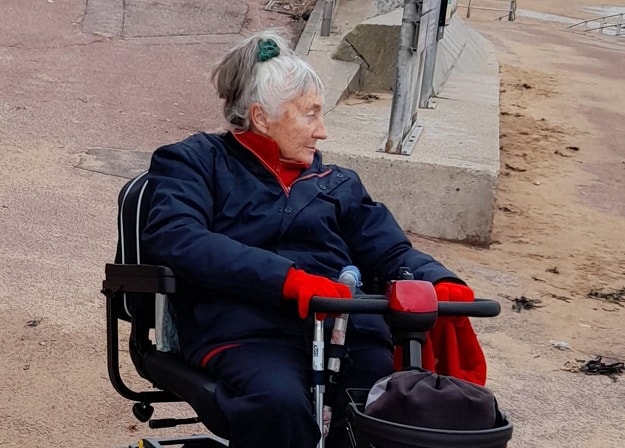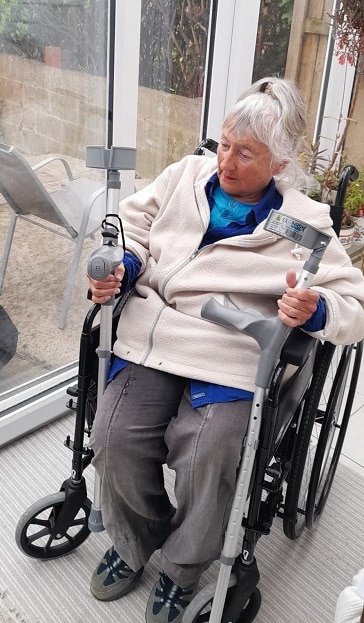
I expect like me you’ve been horrified to see disabled people trying to escape war devastated Ukraine.
Old ladies in wheelchairs amid the rubble of their homes, people on sticks being helped over the debris of the latest bombing. We see the horrors on our TVs but who can imagine what happens to these poor souls later?
Disabled people in your own neighbourhood are not in a war zone, of course, but they can tell you about being helpless in the face of a hostile environment.
Imagine getting transport to a safe border as a wheelchair user. How do you get into the bus or the train? I would need ramps and helpers and someone to lift me out of the chair into a seat and out again.
Imagine a long journey in pain and no medication because it ran out when your pharmacy was bombed. How do you provide toilets for people whose legs don’t work? I need a raised toilet seat and grab rails — and my legs still work a bit and my arms are ok. I couldn’t use a train loo at the moment with my poor balance and I would need help getting off normal loos. Humiliating.
Who will help these people up stairs? Who will push the wheelchairs in a bombardment? I have a stair lift but steps anywhere are a huge challenge to me. So what do you do with no electricity and people with no strength to lift you?

When you can’t walk, your normal life stops. You can’t prepare food or cook. Bathing and washing needs special equipment and there are extra risks from slipping. Putting on clothes involves helpers and is more time consuming than leg users could ever imagine. I’m glad I can still wash and put on clean clothes. Many refugees can’t and the elderly disabled are in an even worse position.
The facilities available in refugee centres are not necessarily adapted for disabilities and families get separated. Or killed. It’s hard enough getting medical help for refugees, let alone other support workers like occupational therapists who have been invaluable in helping me with equipment.
In one heartbreaking news report, a women talked about her disabled mother who preferred to risk the bombs in her own flat, rather than take on the extra danger of travelling.
I wonder what I would do.
We may not be in a war zone but here in the UK disabled people are suffering from the neglect by politicians: living in unsuitable accommodation, lacking basic equipment, fighting for benefits in a system that hates to fund the vulnerable unemployed, choosing between paying for warmth or eating properly. And dying from interminable waiting lists and inaccessible health care.
I can afford to spend my savings on my scooter and my lift. Most elderly disabled people can’t. But savings don’t last forever and only a better funded NHS can reduce waiting lists.

